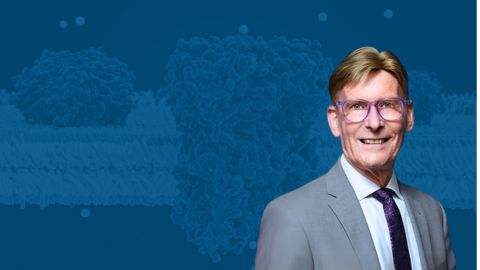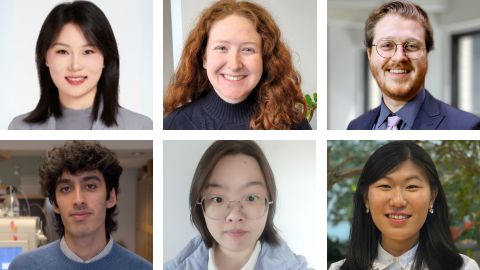
A place with plentiful research support
I

I was born and raised in southeast Texas. After receiving my Ph.D. from the University of Texas Medical Branch in Galveston, I made the move to central Texas for my postdoc. I have worked and lived in San Antonio for about a year, and I love everything this great city has to offer.
UTSA was proud to be designated an R1 institution in 2022. To maintain this honor, the university offers postdocs, graduate students and faculty lots of support for their research. The university has a variety of facilities that help me accelerate my biochemical research, including the Center for Innovative Drug Discovery and the pharmacology, mass spectroscopy, nuclear magnetic resonance and microscopy cores.
Outside the lab, San Antonio has something to offer people of all ages. When I was a child, my family would visit the city and I have fond memories of our time on the historic River Walk. I am now a parent of a young child and a resident of this amazing city, so I enjoy taking my son to the Witte Museum, the San Antonio Zoo and the San Antonio Aquarium for him to make fond family memories of his own.
Submit an abstract
Discover BMB, the annual meeting of the American Society for Biochemistry and Molecular Biology, will be held March 23–26 in San Antonio. Abstracts for poster presentations and spotlight talks will be accepted through Nov. 30. See the poster categories and spotlight talk themes.
Enjoy reading ASBMB Today?
Become a member to receive the print edition four times a year and the digital edition monthly.
Learn moreGet the latest from ASBMB Today
Enter your email address, and we’ll send you a weekly email with recent articles, interviews and more.
Latest in People
People highlights or most popular articles

Richard Silverman to speak at ASBMB 2025
Richard Silverman and Melissa Moore are the featured speakers at the ASBMB annual meeting to be held April 12-15 in Chicago.

Women’s History Month: Educating and inspiring generations
Through early classroom experiences, undergraduate education and advanced research training, women leaders are shaping a more inclusive and supportive scientific community.

ASBMB honors Lawrence Tabak with public service award
He will deliver prerecorded remarks at the 2025 ASBMB Annual Meeting in Chicago.

ASBMB names 2025 JBC/Tabor Award winners
The six awardees are first authors of outstanding papers published in 2024 in the Journal of Biological Chemistry.

Daniel N. Hebert (1962–2024)
Daniel Hebert’s colleagues remember the passionate glycobiologistscientist, caring mentor and kind friend.

In memoriam: Daniel N. Hebert
He was a professor at the University of Massachusetts Amherst, who discovered the glycan code that facilitates protein folding, maturation and quality control in the endoplasmic reticulum.

